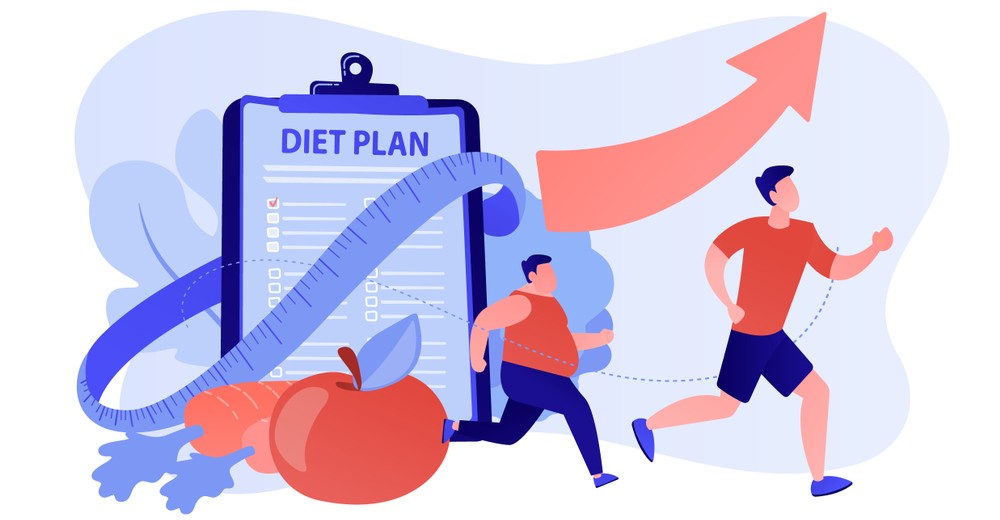Starting a weight management journey can feel overwhelming, but choosing the right foods can make all the difference. For beginners, focusing on nutrient-dense, easy-to-prepare options can help you stay on track without feeling deprived. In this guide, we’ll explore the best foods for beginners to start weight management, offering practical tips and meal ideas to help you achieve your goals.
Why Food Choices Matter for Weight Management
The foods you eat play a crucial role in weight management because they:
- Provide Essential Nutrients: Support overall health and energy levels.
- Control Hunger: High-fiber and high-protein foods keep you full longer.
- Boost Metabolism: Certain foods can increase calorie burning.
- Reduce Cravings: Nutrient-dense options help stabilize blood sugar and curb unhealthy cravings.
By choosing the right foods, you can create a balanced diet that supports your weight goals.
The Best Foods for Beginners to Start Weight Management
Here are some of the best foods to include in your diet:
1. Lean Proteins
- Why They’re Great: Protein helps build muscle, keeps you full, and boosts metabolism.
- Examples: Chicken breast, turkey, fish, eggs, tofu, Greek yogurt, and legumes.
- Meal Idea: Grilled chicken salad with mixed greens and olive oil dressing.
2. Whole Grains
- Why They’re Great: Whole grains are rich in fiber, which aids digestion and keeps you satisfied.
- Examples: Quinoa, brown rice, oats, whole-grain bread, and barley.
- Meal Idea: Overnight oats with berries and a drizzle of honey.
3. Fruits and Vegetables
- Why They’re Great: Low in calories and high in vitamins, minerals, and fiber.
- Examples: Leafy greens, broccoli, carrots, apples, berries, and citrus fruits.
- Meal Idea: A colorful stir-fry with broccoli, bell peppers, and tofu.
4. Healthy Fats
- Why They’re Great: Healthy fats support brain health and keep you full.
- Examples: Avocado, nuts, seeds, olive oil, and fatty fish like salmon.
- Meal Idea: Avocado toast on whole-grain bread with a sprinkle of chia seeds.
5. Low-Fat Dairy or Dairy Alternatives
- Why They’re Great: Provide calcium and protein without excess calories.
- Examples: Skim milk, low-fat yogurt, almond milk, and cottage cheese.
- Meal Idea: A smoothie with low-fat yogurt, spinach, and banana.
6. Legumes and Beans
- Why They’re Great: High in protein and fiber, making them filling and nutritious.
- Examples: Lentils, chickpeas, black beans, and edamame.
- Meal Idea: Lentil soup with a side of whole-grain bread.
7. Nuts and Seeds
- Why They’re Great: Packed with healthy fats, protein, and fiber.
- Examples: Almonds, walnuts, chia seeds, and flaxseeds.
- Meal Idea: A handful of nuts as a snack or chia seed pudding for breakfast.
Tips for Incorporating These Foods into Your Diet
Here’s how to make these foods a regular part of your meals:
- Plan Ahead: Create a weekly meal plan that includes a variety of these foods.
- Prep in Advance: Wash, chop, and store fruits and vegetables for easy access.
- Experiment with Recipes: Try new recipes to keep meals interesting and enjoyable.
- Portion Control: Use measuring cups or a food scale to avoid overeating.
- Stay Hydrated: Drink plenty of water to support digestion and reduce hunger.
Sample Meal Plan for Beginners
Here’s an example of a beginner-friendly meal plan:
Breakfast:
- Greek yogurt with berries and a sprinkle of granola.
Snack:
- A small handful of almonds and an apple.
Lunch:
- Grilled chicken salad with mixed greens, cherry tomatoes, cucumbers, and olive oil dressing.
Snack:
- Carrot sticks with hummus.
Dinner:
- Baked salmon with quinoa and steamed broccoli.
Dessert (Optional):
- A square of dark chocolate or a small bowl of fruit.
Common Mistakes to Avoid
Beginners often make these mistakes when choosing foods for weight management:
- Over-Restricting: Cutting out entire food groups can lead to nutrient deficiencies.
- Ignoring Portion Sizes: Even healthy foods can contribute to weight gain if eaten in excess.
- Relying on Processed “Diet” Foods: These often contain added sugars and unhealthy fats.
- Skipping Meals: Skipping meals can slow metabolism and lead to overeating later.
The Role of Balanced Nutrition in Weight Management
A balanced diet that includes a variety of nutrient-dense foods is essential for long-term weight management. It helps:
- Regulate Hunger: Keeps you full and satisfied, reducing the likelihood of overeating.
- Support Metabolism: Provides the nutrients your body needs to function efficiently.
- Improve Energy Levels: Keeps you energized for daily activities and exercise.
Choosing the best foods for beginners to start weight management is a simple yet effective way to achieve your goals. By focusing on lean proteins, whole grains, fruits, vegetables, and healthy fats, you can create a balanced diet that supports your weight management journey.
Start small, stay consistent, and enjoy the process of discovering new, healthy foods. With time and effort, you’ll see the results you’re working toward.



